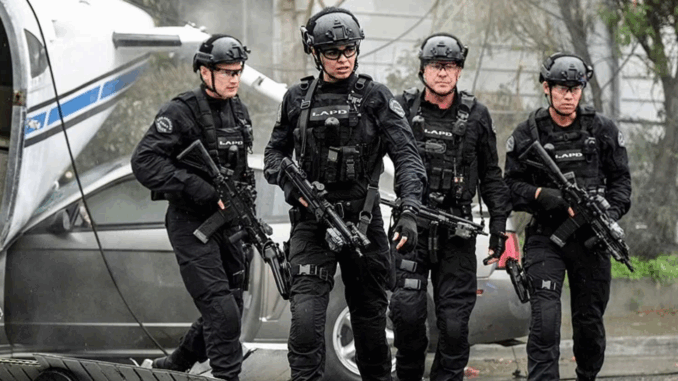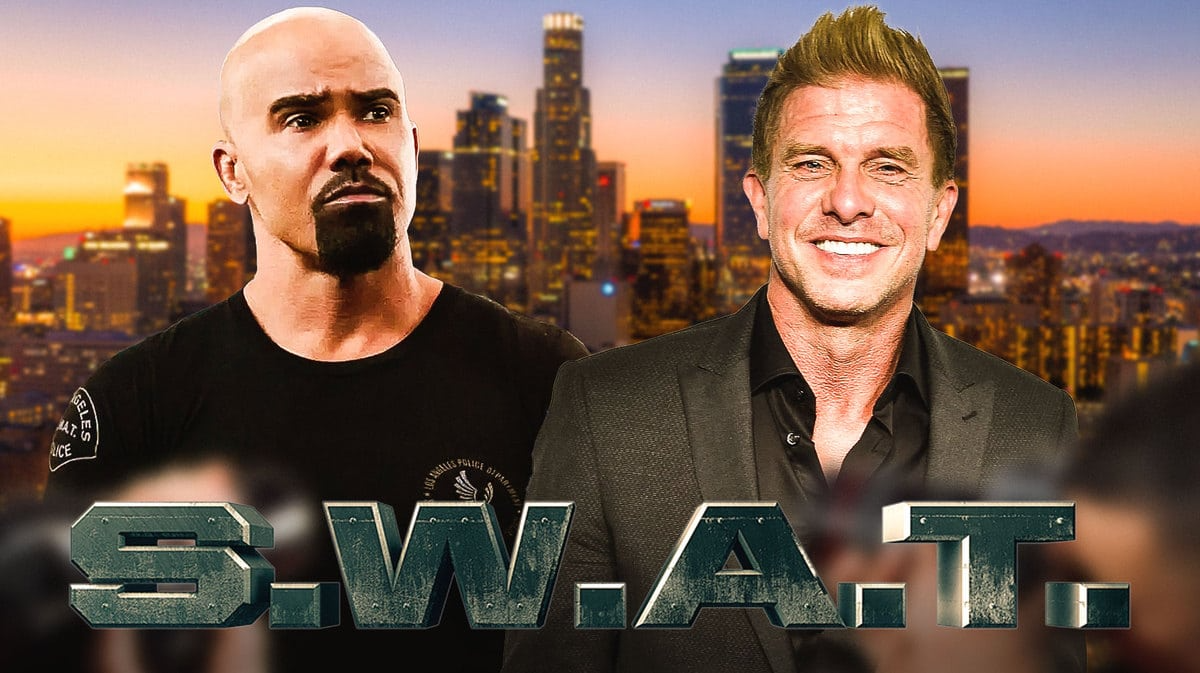
For years, S.W.A.T. has been one of the most action-packed, emotionally gripping shows on network television. With Shemar Moore leading the charge as Daniel “Hondo” Harrelson, the series built a loyal fanbase that fought tooth and nail to keep it alive through multiple cancellation scares. Now, even as the original show winds down, Sony Pictures Television isn’t ready to let go. Instead, they’re preparing a brand-new offshoot to keep the franchise alive.
But why is Sony so determined to continue S.W.A.T. through a spinoff rather than just extending the original? Let’s dig into the business strategy, creative reasoning, and fan expectations behind this move.
The Global Success of S.W.A.T.
One reason is simple: S.W.A.T. performs incredibly well worldwide. While U.S. ratings have faced ups and downs, the series enjoys strong international distribution. Action dramas—especially those featuring tactical units, high-stakes missions, and themes of justice—translate seamlessly across cultures.
Sony recognizes this global appeal. Ending S.W.A.T. entirely would mean leaving money and momentum on the table.
Franchise Building: The New TV Gold Rush
We’re living in the age of franchises. Just like NCIS, Law & Order, and the Chicago series have successfully expanded into multiple shows, Sony sees S.W.A.T. as fertile ground for growth.
A spinoff—or “offshoot”—offers:
-
Fresh Storytelling: New characters, cities, and missions.
-
Franchise Longevity: Keeps the brand alive long after the original cast moves on.
-
Built-In Audience: Fans of the original will tune in to see what comes next.
The Risk of Extending the Original Series
Why not just keep renewing S.W.A.T. as it is? The answer lies in a mix of logistics and creativity:
-
Contracts and Budgets: Keeping the entire original cast for many more seasons is costly.
-
Creative Fatigue: After multiple seasons, writers risk running out of fresh stories.
-
Network Decisions: CBS may hesitate to keep investing in the same format, while Sony, as the production studio, can pivot to a new vision.
S.W.A.T. Offshoot: A Strategic Reset
By launching a new offshoot, Sony gets the best of both worlds:
-
They honor the original while starting with a clean slate.
-
They can introduce new characters without erasing Hondo’s legacy.
-
They avoid being boxed in by the existing series’ continuity.
It’s essentially a chance to rebrand without losing the name recognition.
Hondo’s Shadow: Can the Offshoot Succeed Without Him?
Shemar Moore’s Hondo has been the face of the franchise. Without him, can a new squad carry the torch? Sony seems to think so—but they also know that keeping Moore involved in some way, even through cameos or producing, could ease the transition.
Possible Directions for the Offshoot
Sony hasn’t revealed much, but there are several ways this could play out:
-
New City, New Squad: Relocating to another major city like New York, Chicago, or Miami.
-
International Focus: A global tactical unit tackling worldwide threats.
-
Legacy Storyline: Featuring protégés or younger recruits inspired by Hondo’s leadership.
-
Anthology Style: Different squads featured across seasons.
Learning From Other Franchises
Sony isn’t reinventing the wheel. They’re following a proven playbook:
-
NCIS spun off into multiple successful shows, each with unique settings.
-
Law & Order revived itself with reboots and expansions.
-
CSI transitioned into CSI: Vegas, blending legacy characters with newcomers.
The formula works when done right.
Why Sony Is Playing the Long Game
Sony Pictures Television owns the rights to S.W.A.T.—not CBS. That means Sony can keep creating content under the S.W.A.T. banner even if the network passes on more seasons. By developing an offshoot, they control the franchise’s future, including:
-
Streaming Deals: Fresh content for platforms like Netflix, Prime Video, or Hulu.
-
International Distribution: Expanding into markets hungry for U.S. action dramas.
-
Merchandising and Licensing: Growing revenue streams beyond just TV.
Fan Reaction: Mixed but Hopeful
Some fans are skeptical, fearing the offshoot will feel hollow without Hondo and his squad. Others are cautiously optimistic, seeing it as a chance to keep the spirit of S.W.A.T. alive. Sony knows the key is to balance nostalgia with innovation.
Challenges Ahead for the Offshoot
Of course, Sony faces hurdles:
-
Winning Over Loyal Fans: Viewers who only care about Hondo might not tune in.
-
Creating Compelling New Characters: The heart of S.W.A.T. was always its squad dynamics.
-
Avoiding Comparisons: The offshoot must stand on its own while honoring the original.
Why the Timing Feels Right
With the original show reaching its natural end, now is the perfect time for Sony to pivot. Launching the offshoot too early might have confused fans; launching it too late risks losing momentum. Striking while the fanbase is still engaged makes sense.
The Bottom Line: Sony’s Bet on S.W.A.T.
Sony’s decision boils down to one truth: S.W.A.T. isn’t just a TV show—it’s a franchise. By shifting gears into an offshoot, they’re betting on the brand’s ability to endure, evolve, and expand into a long-running universe.
Conclusion
Sony’s determination to keep S.W.A.T. alive through a new offshoot shows just how much faith they have in the franchise’s future. While the original squad may be stepping aside, the world of tactical units, high-stakes missions, and moral dilemmas is far from over. The offshoot represents not an ending, but a rebirth—a chance to tell fresh stories while honoring what came before.
For fans, it’s a bittersweet but exciting moment. The faces may change, but the adrenaline, brotherhood, and themes of justice that define S.W.A.T. are here to stay.
FAQs
1. Why is Sony creating an offshoot instead of continuing the original series?
Contracts, budgets, and creative fatigue make a spinoff more practical than endlessly extending the original.
2. Will Shemar Moore appear in the offshoot?
While not confirmed, his involvement—even through cameos or production—remains possible.
3. Will the new series follow the same squad?
Likely not. Sony is expected to introduce a new team, possibly in a different location.
4. How does the offshoot benefit Sony financially?
It boosts international distribution, streaming deals, and long-term franchise growth.
5. When can fans expect the new S.W.A.T. offshoot?
No release date has been announced yet, but development is actively underway.
Custom Message:
Thank you for reading! The original squad may be stepping aside, but Sony’s vision proves that the S.W.A.T. legacy is only just beginning.
Would you like me to also create a speculative breakdown of potential spinoff titles and storylines Sony could use for the new S.W.A.T. series?
